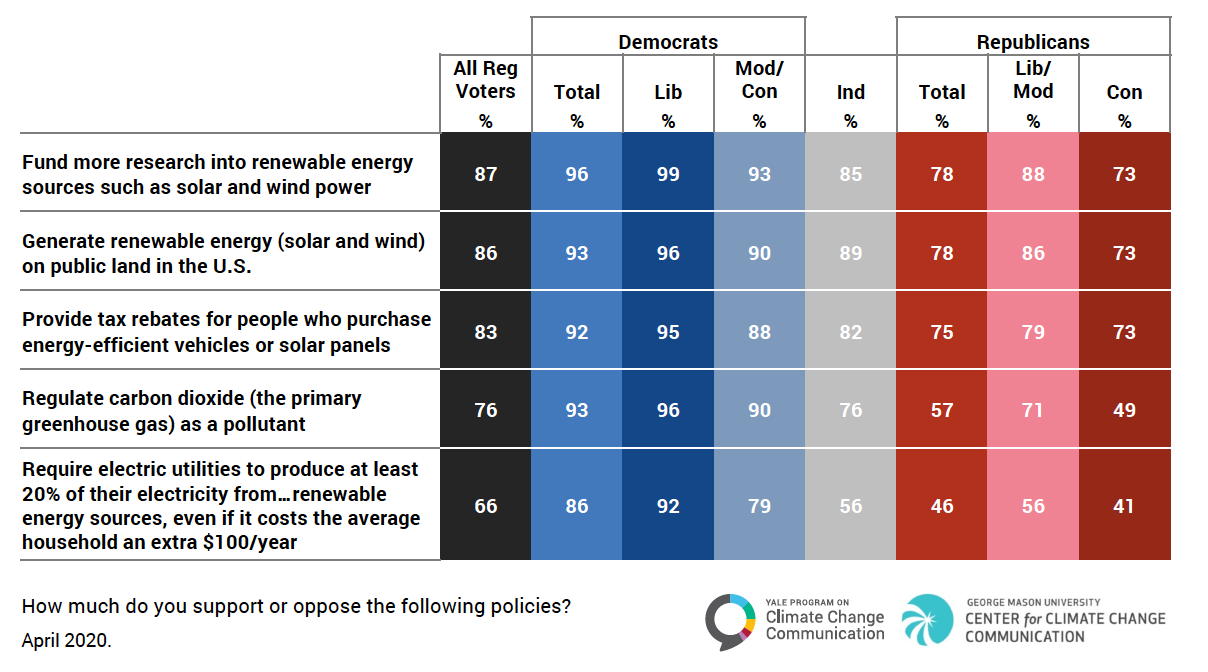Americans are famously far behind the curve when it comes to climate change. The United States and Australia remain the only two developed countries in the world where climate sceptics still have a significant lobby.
Yet, they are clearly losing their influence.
In April the Yale Program on Climate Change Communication did its annual survey on perceptions and attitudes about climate change across the political spectrum. It’s a long report, but definitely worth reading if you are in the United States and want to know what people (and investors) are thinking.
I have written about the interesting result from this survey that climate action doesn’t seem to go away despite the Covid-19 pandemic. Yet, there are plenty of other important results. Here are four that caught my eye:
The bad news first. Climate change is not as important in voters’ minds as it should be. While roughly half of all Americans state that climate change is one of several important topics that will inform their decision who to vote for in the Presidential elections in November, it remains mostly an issue for Democratic voters and not for Republicans or Independents.

However, that doesn’t mean that climate change can be ignored by Presidential candidates. While only half of all voters (and only 37% of Independents) say that they would be more likely to vote for a candidate who strongly supports climate action, 55% of all voters (and 53% of Independents) say they are less likely to vote for a candidate who opposes climate action. In other words, while climate change is not a winning issue for the Presidential election, it is a losing issue to oppose climate action.
The outlook for climate action becomes even brighter when one asks about specific investments to mitigate climate change. Support for research and investments in renewable energy and tax rebates for buyers of energy-efficient vehicles and rooftop solar panels is incredibly high. Even amongst Republicans, three out of four voters are in favour of these measures. And the regulation of CO2 as a pollutant enjoys 76% approval amongst all voters including a majority of Republicans. Thus, using the current crisis as a launchpad for more investment in renewable energy and other climate action seems to be not only good policy but also good politics.

Which brings me to the most surprising (and most uplifting) result of the survey. I would have guessed that the suggested Green New Deal is entirely a left-wing pipe dream in the United States. Yet, when asked about the idea and its intended goals, a large majority of voters are in favour of it – including roughly half of all Republican voters and two-thirds of moderate Republicans. Of course, the question didn’t ask about how to finance such a Green New Deal which us where the differences are likely to be large, but it seems that almost everybody seems to be on board with the goals of a Green New Deal. And that is a great start.





The irony is that the US is the country that is closest to hitting it's Paris Climate Agreement targets thanks to it's switch from coal to natural gas and renewables...